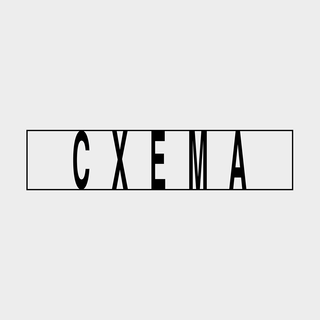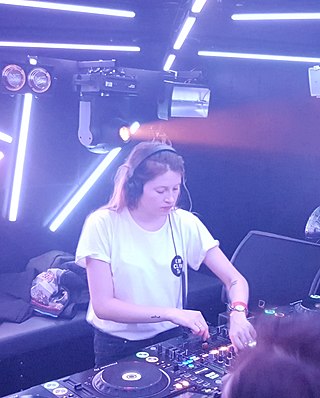Related Research Articles
House is a genre of electronic dance music characterized by a repetitive four-on-the-floor beat and a typical tempo of 120-130 beats per minute as a re-emergence of 1970s disco. It was created by DJs and music producers from Chicago's underground club culture and evolved slowly in the early/mid 1980s as DJs began altering disco songs to give them a more mechanical beat. By early 1988, House became mainstream and supplanted the typical 80s music beat.

Thomas John Digweed is a British DJ and record producer. DJ Magazine voted him the World No. 1 DJ in 2001. As well as achieving success as a solo act, he has collaborated with Sasha as Sasha & John Digweed, and with Nick Muir as Bedrock.
Trance is a genre of electronic dance music that emerged from EBM in Frankfurt, Germany, in the late 1980s and early 1990s, and quickly spread throughout Europe.

A rave is a dance party at a warehouse, club, or other public or private venue, typically featuring performances by DJs playing electronic dance music. The style is most associated with the early 1990s dance music scene when DJs played at illegal events in musical styles dominated by electronic dance music from a wide range of sub-genres, including drum and bass, dubstep, trap, break, happy hardcore, trance, techno, hardcore, house, and alternative dance. Occasionally live musicians have been known to perform at raves, in addition to other types of performance artists such as go-go dancers and fire dancers. The music is amplified with a large, powerful sound reinforcement system, typically with large subwoofers to produce a deep bass sound. The music is often accompanied by laser light shows, projected coloured images, visual effects and fog machines.
Detroit techno is a type of techno music that generally includes the first techno productions by Detroit-based artists during the 1980s and early 1990s. Prominent Detroit techno artists include Juan Atkins, Eddie Fowlkes, Derrick May, Jeff Mills, Kevin Saunderson, Blake Baxter, Drexciya, Mike Banks, James Pennington and Robert Hood. Artists like Terrence Parker and his lead vocalist, Nicole Gregory, set the tone for Detroit's piano techno house sound.

A free party is a party "free" from the restrictions of the legal club scene, similar to the free festival movement. It typically involves a sound system playing electronic dance music from late at night until the time when the organisers decide to go home. A free party can be composed of just one system or of many and if the party becomes a festival, it becomes a teknival. This typically means that drugs are readily available. The word free in this context is used both to describe the entry fee and the lack of restrictions and law enforcement.

Derrick May, also known as Mayday and Rhythim Is Rhythim, is an American electronic musician from Belleville, Michigan, United States. May is credited with pioneering techno music in the 1980s along with collaborators Juan Atkins and Kevin Saunderson, commonly known as The Belleville Three.

Spiral Tribe is an arts collective and free party sound system formed in 1990. It organised free parties, festivals and raves in the UK and later Europe in the 1990s. Spiral Tribe was involved in the Castlemorton Common Festival, and members have released music on labels such as Network 23 and Big Life Records. The sound system combined pagan beliefs with New Age traveller culture and rave to form teknivals. After a hiatus, the collective reformed as SP23 in 2011 and continues to organise events.
Free tekno, also known as tekno, freetekno and hardtek, is the music predominantly played at free parties in Europe. The spelling tekno is deliberately used to differentiate the musical style from techno. The music is fast and it can vary between 150 and 185 bpm and is characterised by a pounding repetitive kick drum. Nevertheless, bass drum distortion by clipping is used less often as in the related genre of mainstyle hardcore. Nowadays, some tekno producers also use drum sets that rather sound trancey, since many members of the tekno subculture as well as the psytrance subculture frequently attend the same raves and the two scenes are closely connected.
Electronic dance music (EDM), also referred to as club music, is a broad range of percussive electronic music genres originally made for nightclubs, raves, and festivals. It is generally produced for playback by DJs who create seamless selections of tracks, called a DJ mix, by segueing from one recording to another. EDM producers also perform their music live in a concert or festival setting in what is sometimes called a live PA. Since its inception EDM has expanded to include a wide range of subgenres.

Tribal Gathering is the original British electronic dance music festival that between 1993 and 2004 catered for different types of dance music cultures such as techno, house and drum & bass. After 18 years, Tribal Gathering returns in 2023 for a two-day event to celebrate its 30th anniversary.
German electronic music is a broad musical genre encompassing specific styles such as Electroclash, trance, krautrock and schranz. It is widely considered to have emerged in the late 1960s and early 1970s, becoming increasingly popular in subsequent decades. Originally minimalistic style of electronic music developed into psychedelic and prog rock aspects, techno and electronic dance music. Notable artists include Kraftwerk, Can, Tangerine Dream and Deutsch Amerikanische Freundschaft. German electronic music contributed to a global transition of electronic music from underground art to an international phenomenon, with festivals such as Love Parade, Winterworld and MayDay gaining prominence alongside raves and clubs.
Every Picture Tells a Story were a series of all-night electronic dance music festivals held at different venues in Melbourne. In 1991 Heidi John and Richard John started a series of warehouse, rave parties. In 1993 they formed the Melbourne Underground Development (M.U.D.) crew with Phil Woodman. From 1993 to 1997 the parties were held at the Global Village in suburban, Footscray. Some 21 such parties were held until the year 2000. A one-off Every Picture Tells a Story event was held in April 2010.
Techno is a genre of electronic dance music which is generally produced for use in a continuous DJ set, with tempos being in the range of 120 to 150 beats per minute (BPM). The central rhythm is typically in common time (4/4) and often characterized by a repetitive four on the floor beat. Artists may use electronic instruments such as drum machines, sequencers, and synthesizers, as well as digital audio workstations. Drum machines from the 1980s such as Roland's TR-808 and TR-909 are highly prized, and software emulations of such retro instruments are popular.
Clubbing is the activity of visiting and gathering socially at nightclubs and festivals. That includes socializing, listening to music, dancing, drinking alcohol and using other recreational drugs. It is often done to hear new music on larger, high-end audio systems than one would usually have in one's home, or for socializing and meeting new people. Clubbing and raves have historically referred to grass-roots organized, anti-establishment and unlicensed all night dance parties, typically featuring electronically produced dance music, such as techno, house, trance and drum and bass.
Zak Khutoretsky, also known as DVS1 is an American DJ and techno producer based out of Minneapolis. He has toured extensively, headlined international music festivals such as Decibel and Dekmantel, and played along the likes of techno pioneers Jeff Mills and Robert Hood.
female:pressure is an international network of female, transgender and non-binary artists in the fields of electronic music and digital arts founded by Electric Indigo in 1998 : from musicians, composers and DJs to visual artists, cultural workers and researchers. A worldwide resource of talent that can be searched after criteria like location, profession, style or name. "Why are there so few women active in the electronic music scene?" - each one of us has heard this question a thousand times... Here is the answer: It's not our number, it's about how and if we are recognized!

Cxema is a Ukrainian organiser of raves in urban spaces in Ukraine and Europe. Its parties have been held several times a year in various post-industrial locations in Kyiv since 2014.

Charlotte de Witte is a Belgian DJ and record producer, best known for her "dark and stripped-back" brand of acid techno and minimal techno. She has previously performed under the alias Raving George. She is the founder of the labels KNTXT and Époque.
Deconstructed club, also known as post-club or deconstructed music is an experimental style of electronic dance music characterized by a post-modernist approach and an abrasive or dystopian tone. It stands opposed to the tropes of mainstream club styles, often dispensing with four-on-the-floor beats and stable tempo while mixing eclectic or abrasive sources.
References
- ↑ Dazed (2016-12-08). "The Iranian DJ duo who risked their lives to party". Dazed. Retrieved 2017-11-25.
- ↑ Telekom (2016-08-25). "Raving Iran: The Story Behind Iran's Illegal Party Scene – Telekom Electronic Beats". Telekom Electronic Beats. Retrieved 2017-11-25.
- ↑ Illingworth, Sarah (2017-11-02). "Susanne Meures on documenting the Iranian underground in Raving Iran". Huffington Post. Retrieved 2017-11-25.
- ↑ "How Two DJs Are Defying the Iranian Government with Techno". Hyperallergic. 2017-02-01. Retrieved 2017-11-25.
- ↑ "Iran underground techno documentary Raving Iran is coming to the UK". FACT Magazine: Music News, New Music. 2017-04-04. Retrieved 2017-11-25.
- ↑ "Iranian DJs denied entry into UK to perform at Raving Iran documentary launch". Mixmag. Retrieved 2017-11-25.